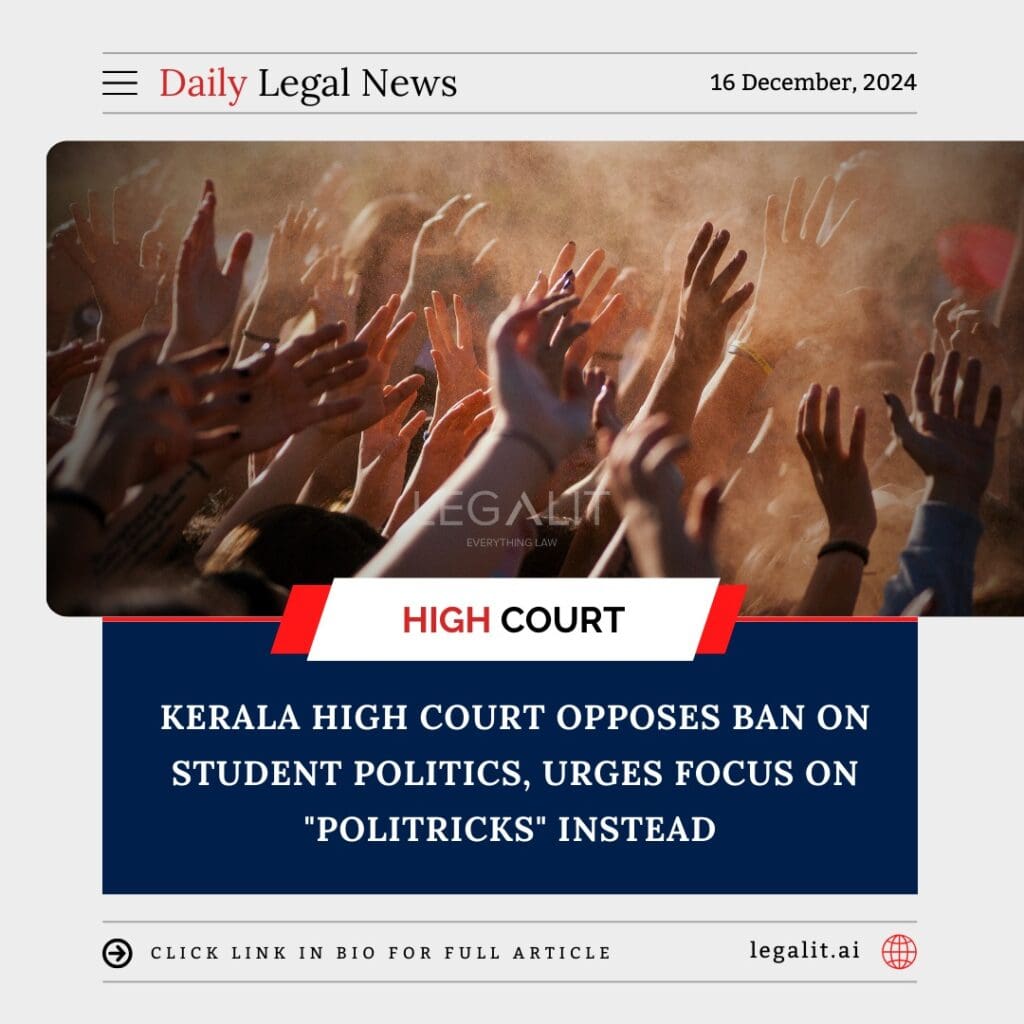
The Kerala High Court has ruled against a petition seeking a complete ban on student politics within the state’s educational institutions. The court’s decision emphasized that while student politics is integral to democracy and offers an avenue for political expression, the focus should instead be on curbing the “politricks” or manipulative practices often associated with it. The judgment encourages educational institutions to promote healthy political engagement rather than banning it outright.
Background:
The petition filed by a group of individuals argued that student politics had led to disruptions, violence, and unnecessary interference in academic activities within campuses. The petitioners called for a blanket ban on student organizations and their political activities, suggesting that such practices negatively impact the educational environment. They argued that such politics often gets embroiled in power struggles, leading to a breakdown of discipline.
Student organizations in Kerala have historically been a significant part of campus life, with political parties influencing student union elections and decisions. However, incidents of campus violence and political rivalries have raised concerns about the role of student politics in the state’s educational institutions.
Court’s Rationale:
The Kerala High Court’s ruling pointed out that student politics, when practiced responsibly, plays a vital role in fostering political awareness, leadership skills, and social responsibility among youth. However, the court acknowledged that the negative consequences of “politricks,” such as the manipulation of students for personal or party gains, should not be tolerated. The court suggested that educational institutions should work toward regulating such behavior and encourage constructive political participation rather than imposing an outright ban on political activities.
In the ruling, the bench observed that student politics should be a platform for voicing concerns, raising issues, and engaging in healthy debates, which are key to democratic functioning. It further stressed the need for educational institutions to adopt clear guidelines to prevent abuse of student organizations and ensure that political activities do not disrupt the primary purpose of education.
Existing Measures:
Many universities and educational institutions in Kerala have already put in place regulations to oversee student political activities. These include the establishment of student unions, with elections based on democratic principles. At the same time, many campuses have set boundaries to ensure that political activities do not disrupt academic progress or lead to violence.
In several cases, student organizations have been involved in social and political movements, advocating for social justice, educational reforms, and political awareness, which have been credited with contributing positively to society. However, the state has also witnessed incidents where student politics became embroiled in violent clashes and disruptions.
Conclusion:
The Kerala High Court’s decision emphasizes that banning student politics is not the solution, and the focus should be on tackling “politricks” that distort the democratic essence of campus politics. The judgment encourages educational institutions to foster a healthy political environment, free from manipulation, violence, or unnecessary interference in academic activities. The ruling highlights the importance of creating a balanced space for students to express their political opinions while maintaining discipline and academic integrity.